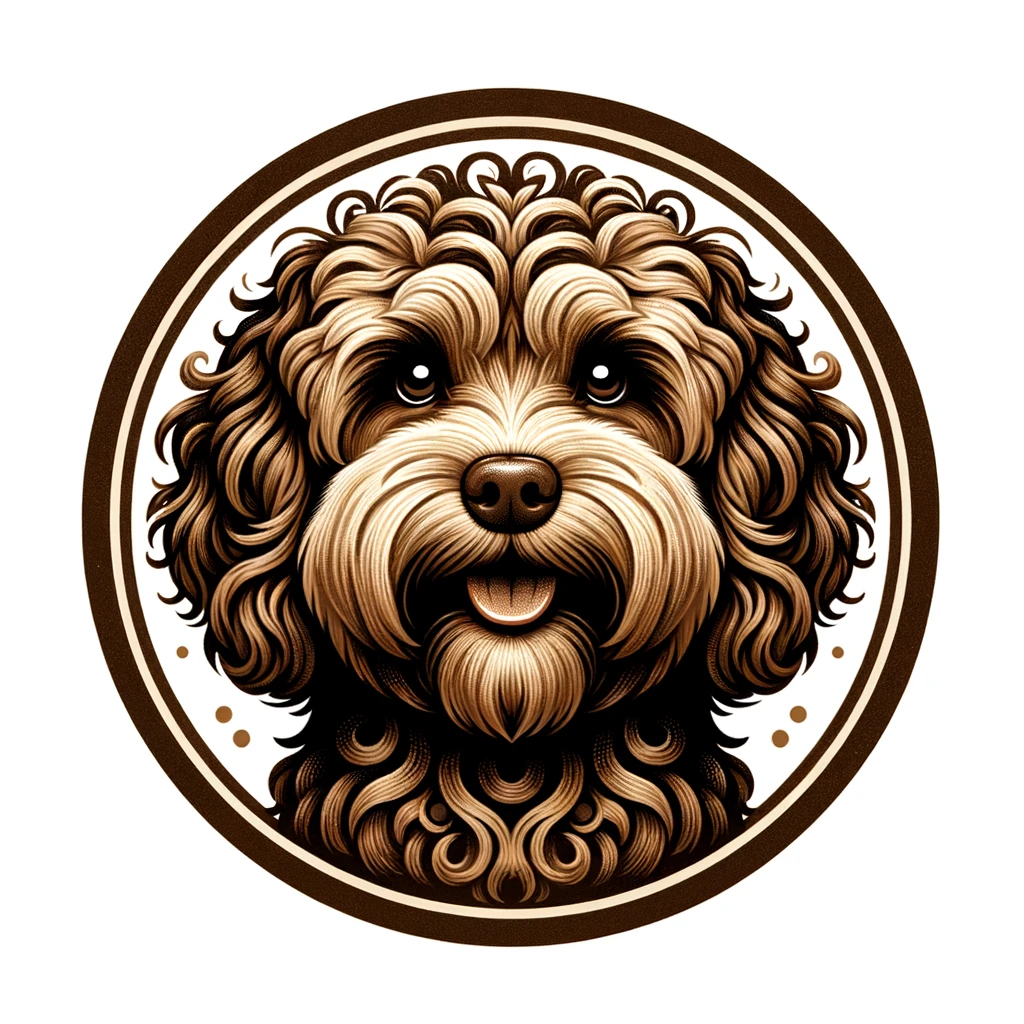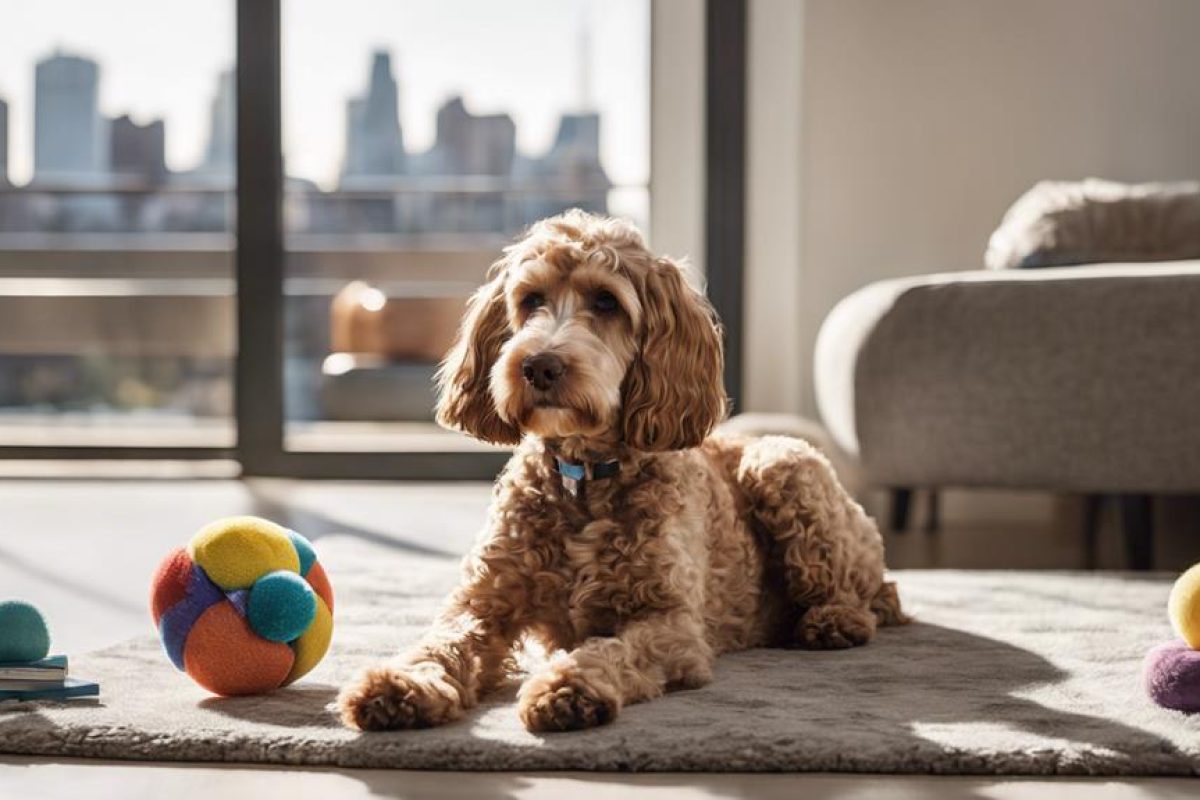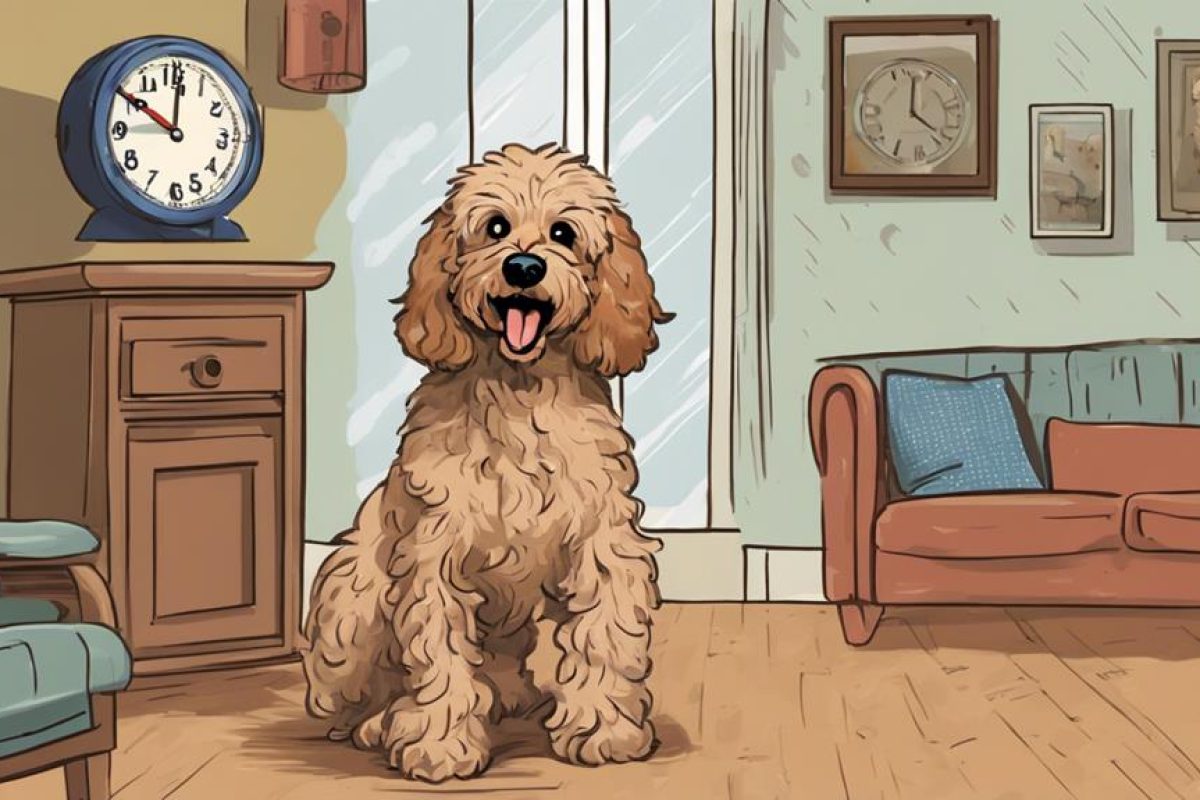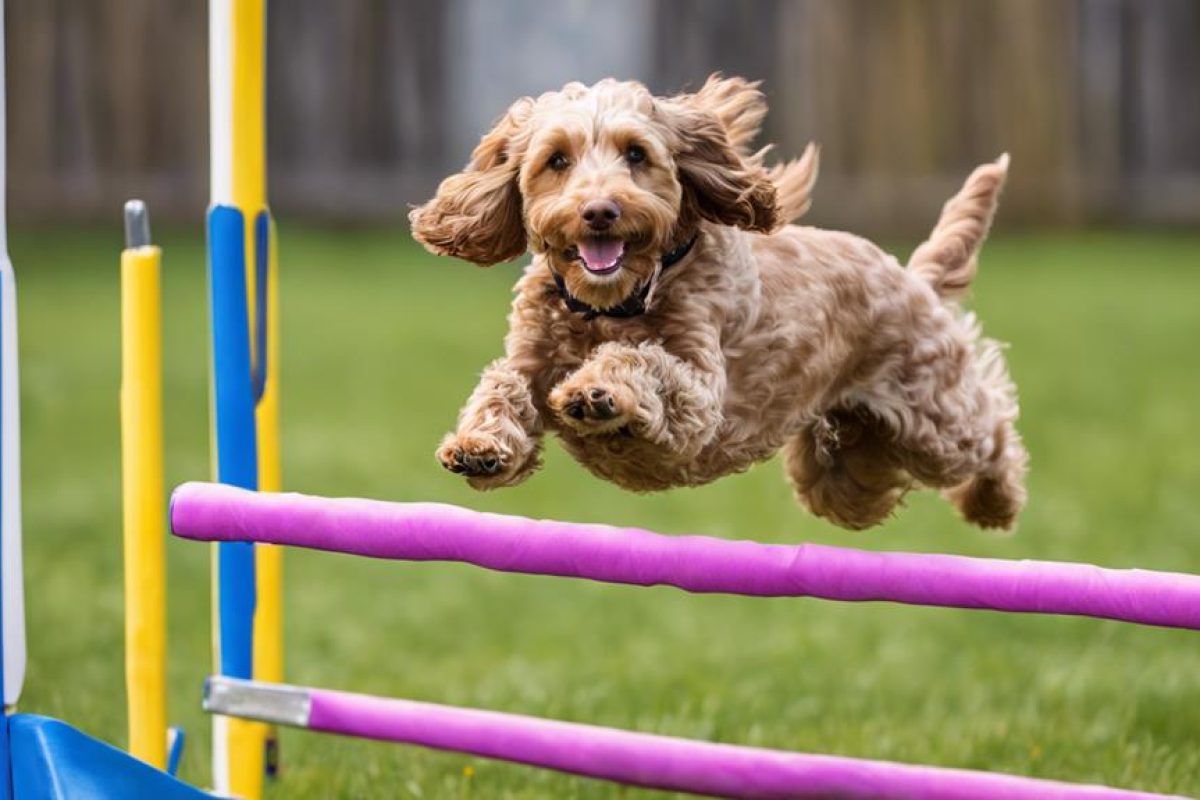Have you noticed your cockapoo constantly biting or licking their paws? This behavior can be frustrating and concerning for pet owners, but don’t worry – there are usually understandable reasons behind it. Your furry friend might be reacting to food allergies, environmental triggers, stress, boredom, or even parasites like fleas and ticks. It’s also possible that they’re experiencing pain from dental issues, injuries, or anxiety. Whatever the cause, it’s important to figure it out so you can help your cockapoo feel comfortable and healthy again.
Key Takeaways
- Cockapoos may bite their paws due to food allergies or intolerances.
- Environmental factors like pollen or dust can trigger paw biting.
- Psychological issues like stress, boredom, or anxiety can cause this behavior.
- Parasitic infections from fleas and ticks often lead to paw biting.
- Pain from dental problems or injuries can make cockapoos bite their paws.
Understanding Cockapoo Behavior
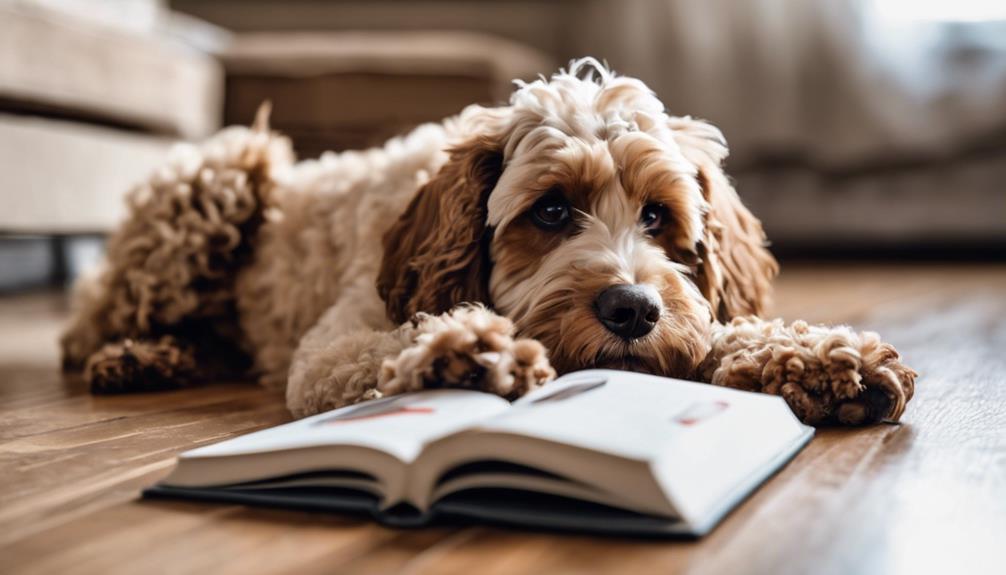
Before we dive into the specific reasons why your cockapoo might be biting their paws, it’s helpful to understand a bit about the breed’s typical behavior. Cockapoos are a mix between Cocker Spaniels and Poodles, and they’re known for being friendly, outgoing, and eager to please their owners. They’re also very intelligent dogs, which makes them relatively easy to train compared to some other breeds.
However, that intelligence can sometimes lead to challenges during training. If cockapoos don’t get enough mental stimulation, they can become bored and start developing bad habits like paw biting. That’s why it’s important to use positive reinforcement techniques and keep training sessions engaging and exciting.
Overall, cockapoos need both physical and mental exercise to stay happy and healthy. Understanding their unique personality traits and need for stimulation is the first step in addressing any behavioral issues like paw biting.
Common Causes of Paw Biting
So, what exactly could be causing your cockapoo to bite their paws? There are several potential reasons, including:
Food Allergies: Just like humans, dogs can be allergic to certain ingredients in their food. If your cockapoo is allergic to something they’re eating, it might be causing itchiness or discomfort that leads to paw biting. Common food allergens for dogs include beef, dairy, wheat, eggs, chicken, and soy.
Environmental Triggers: Things in your cockapoo’s environment like pollen, dust mites, or certain fabrics can also trigger allergic reactions and paw biting. If your pet is constantly exposed to these triggers, they may develop a habit of biting their paws to relieve the itchiness.
Psychological Factors: Dogs can experience stress, boredom, and anxiety just like people do. When cockapoos feel this way, they may start biting their paws as a way to cope or release that nervous energy. This behavior often starts when there’s a lack of mental stimulation or changes in the environment.
Understanding what might be causing your cockapoo’s paw biting is the first step in helping them break this habit.
Parasitic Infections Explained
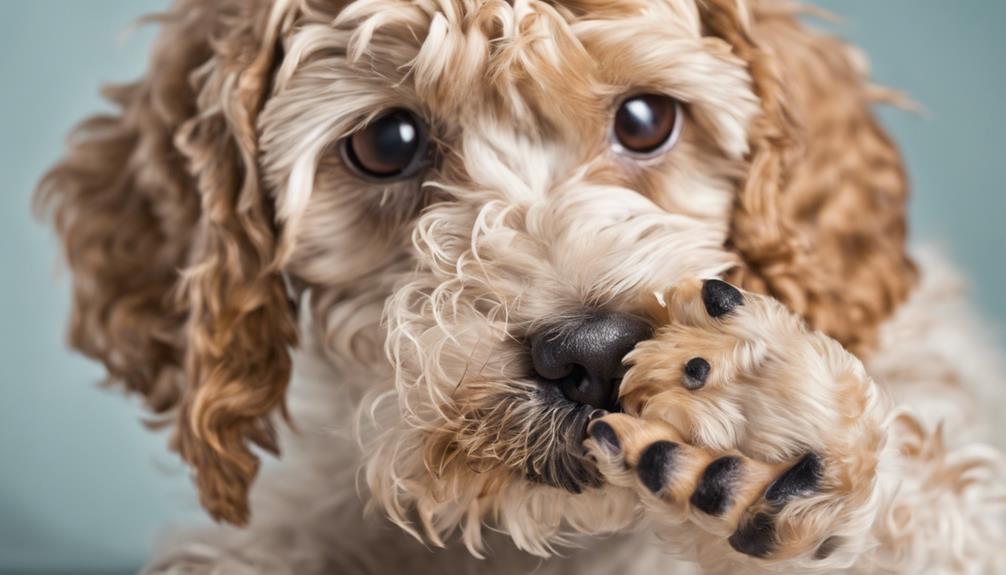
In addition to allergies and psychological factors, parasites like fleas and ticks can also lead cockapoos to bite their paws excessively. Here’s a closer look at how these pesky critters can affect your pet:
| Parasite | Effect on Cockapoos |
|---|---|
| Fleas | Fleas can cause intense itching and discomfort, leading your cockapoo to bite its paws in an attempt to relieve the itch. |
| Ticks | Ticks can cause localized irritation or even transmit diseases, making your cockapoo bite the affected area. |
Battling fleas and ticks is an important part of keeping your cockapoo healthy and preventing paw biting issues. Regular grooming, preventative medication, and checking your pet for these parasites can go a long way.
Allergy-Induced Paw Biting
As mentioned earlier, allergies are a common cause of excessive paw biting in cockapoos. These allergies can be triggered by certain foods or environmental factors:
Food Intolerances: If your cockapoo is allergic or intolerant to an ingredient in their food, like corn, wheat, or specific proteins, it can cause skin irritation and itchiness – especially around the paws. This uncomfortable feeling often leads to obsessive paw biting.
Seasonal Allergies: Pollen, dust mites, and mold can all trigger allergic reactions in some dogs. When cockapoos are exposed to these allergens, their skin may become inflamed and itchy, causing them to bite at their paws for relief.
Contact Allergies: Everyday household items like cleaning products or certain fabrics on your furniture could also be causing a localized allergic reaction on your cockapoo’s paws, leading to biting behavior.
If you suspect allergies are the root cause of your pet’s paw biting, you’ll need to work closely with your vet to identify the specific allergen and develop a plan to manage your cockapoo’s symptoms.
Pain-Related Biting in Cockapoos

Sometimes, excessive paw biting can actually be a sign that your cockapoo is experiencing pain or discomfort in that area. Dental issues and injuries are two common culprits:
Dental Problems: Dogs can develop painful dental conditions like tooth decay, gum disease, or abscesses that may make them start biting or chewing on their paws. Regular dental check-ups can help catch these issues early.
Injuries: If your cockapoo has a sprain, fracture, or even just a small thorn stuck in their paw, it can cause significant pain and make them start biting at that area obsessively. It’s important to check your pet’s paws regularly for any signs of swelling, redness, or abnormalities.
Don’t ignore it if your cockapoo seems to be biting at their paws due to pain. Excessive licking and chewing can actually make injuries and dental issues worse, so it’s best to have your vet examine your pet right away.
Anxiety and Paw Biting
Anxiety and stress are often overlooked causes of paw biting behavior in cockapoos. There are a few different types of anxiety that could be affecting your pet:
Separation Anxiety: If your cockapoo gets very distressed when you leave them alone, it can lead to destructive behaviors like excessive barking, pottying indoors, and yes – paw biting. It’s their way of trying to cope with the fear and stress of you being gone.
Fear-Related Anxiety: Loud noises, strangers, or unfamiliar environments can all trigger anxiety and fear in some cockapoos. When they feel this way, they may start biting their paws as a sort of self-soothing mechanism.
Compulsive Behavior: Sometimes paw biting develops into a compulsive habit that provides relief from underlying stress and anxiety in your cockapoo. It becomes a repetitive behavior they can’t seem to stop.
Reducing your cockapoo’s anxiety levels through training, environmental changes, and in severe cases, medication from your vet can help stop stress-related paw biting behaviors.
The Role of Boredom
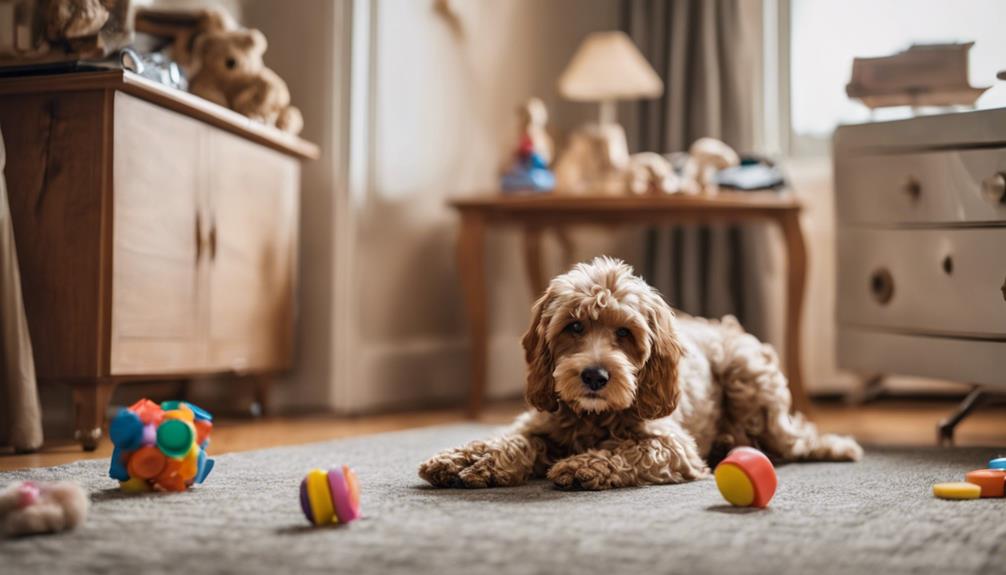
You might not realize it, but simple boredom and lack of stimulation can actually cause cockapoos to start biting their paws out of habit or as a way to entertain themselves. These intelligent, high-energy dogs need plenty of physical and mental exercise to stay happy and healthy. Without it, they may turn to destructive behaviors like:
| Impact of Boredom | Benefit of Interactive Toys |
|---|---|
| Paw biting due to lack of stimulation | Distracts attention from paws |
| Increased restlessness and destructive behavior | Provides physical and mental stimulation |
| Compulsive behavior due to pent-up energy | Helps expend energy in a healthy way |
Treatment Options for Paw Biting
If your cockapoo’s paw biting has become a persistent problem, don’t worry – there are ways to help! Here are some treatment options to consider:
Dental Care: If dental issues seem to be the root cause, getting your cockapoo’s teeth professionally cleaned and any decaying teeth removed can help alleviate their discomfort and stop the paw biting.
Diet Changes: Switching your pet to a hypoallergenic or limited ingredient diet may eliminate food allergies that are triggering paw biting and itchiness.
Behavior Modification: Working with an animal behaviorist can teach you techniques to redirect your cockapoo’s nervous energy or boredom into more positive behaviors instead of paw biting.
With some adjustments and the right professional help, you can get your cockapoo’s paw biting under control.
Home Remedies to Try
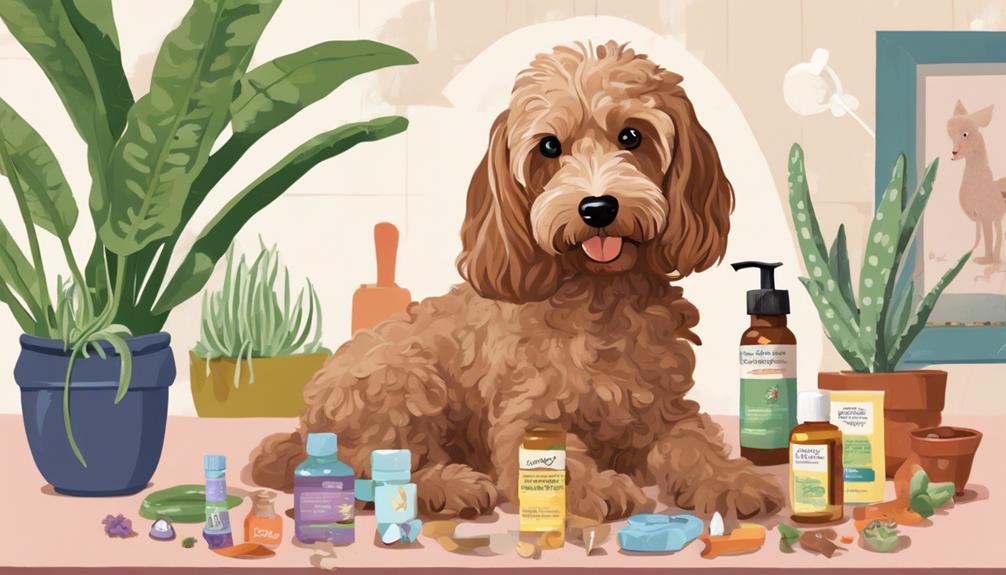
In addition to seeking professional treatment, there are some simple home remedies you can try to soothe your cockapoo’s irritated paws and discourage the biting behavior:
Paw Balms: Make a homemade paw balm using ingredients like coconut oil, shea butter, and beeswax to help heal any inflammation or cracked skin on your pet’s paws.
Hypoallergenic Diet: Try an elimination diet to identify any food allergies that could be causing your cockapoo to bite their paws. Feed a limited ingredient diet for several weeks and look for improvements.
The key is to regularly inspect and care for your cockapoo’s paws while determining and addressing the underlying cause of the biting behavior.
When to Consult a Vet
While home remedies can be helpful, there are times when you’ll need to seek professional veterinary care for your cockapoo’s excessive paw biting:
If the behavior persists despite your efforts at home, it could indicate a more serious health issue that needs to be evaluated.
If you notice any wounds, bleeding, or signs of infection on your pet’s paws, don’t wait – make a vet appointment right away.
A sudden change in behavior combined with paw biting, like lethargy or loss of appetite, should be examined by your vet.
Recurring vet visits and open communication about your cockapoo’s paw biting issues are important for getting to the root of the problem.
Also to note, be sure to check out Dogtime.com’s dog paw care guide for more info. It dives into additional info around topics like winter care for your dog’s little paws.
Frequently Asked Questions
What Is the Average Lifespan of a Cockapoo?
You’re curious about a cockapoo’s lifespan, right? On average, they live 12-15 years. However, Cockapoo health issues and grooming needs can influence this. Proper care will help your furry friend enjoy a long, healthy life.
Are Cockapoos Easy to Train?
Yes, you’ll find cockapoos quite easy to train due to their enthusiastic-to-please temperament. However, training techniques matter. Patience, positive reinforcement, and consistency are key to successfully training your cockapoo. They’ll quickly become a well-behaved family member.
What Is the Ideal Diet for a Cockapoo?
Your cockapoo’s ideal diet should balance their protein requirements with nutritional needs. Watch out for food allergies, which are common in this breed. High-quality dog food, rich in protein, can help maintain their health.
How Do Cockapoos Interact With Children and Other Pets?
Cockapoos generally have a friendly temperament, making them great with kids and other pets. However, it’s important for children’s safety to supervise interactions. You’ll find your cockapoo loves being part of the family dynamic.
Do Cockapoos Need a Lot of Exercise?
Yes, your cockapoo needs plenty of exercise. Regular exercise routines not only keep them physically fit, but also offer essential mental stimulation. You’re creating a strong bond and a happier, healthier pet with each activity.
